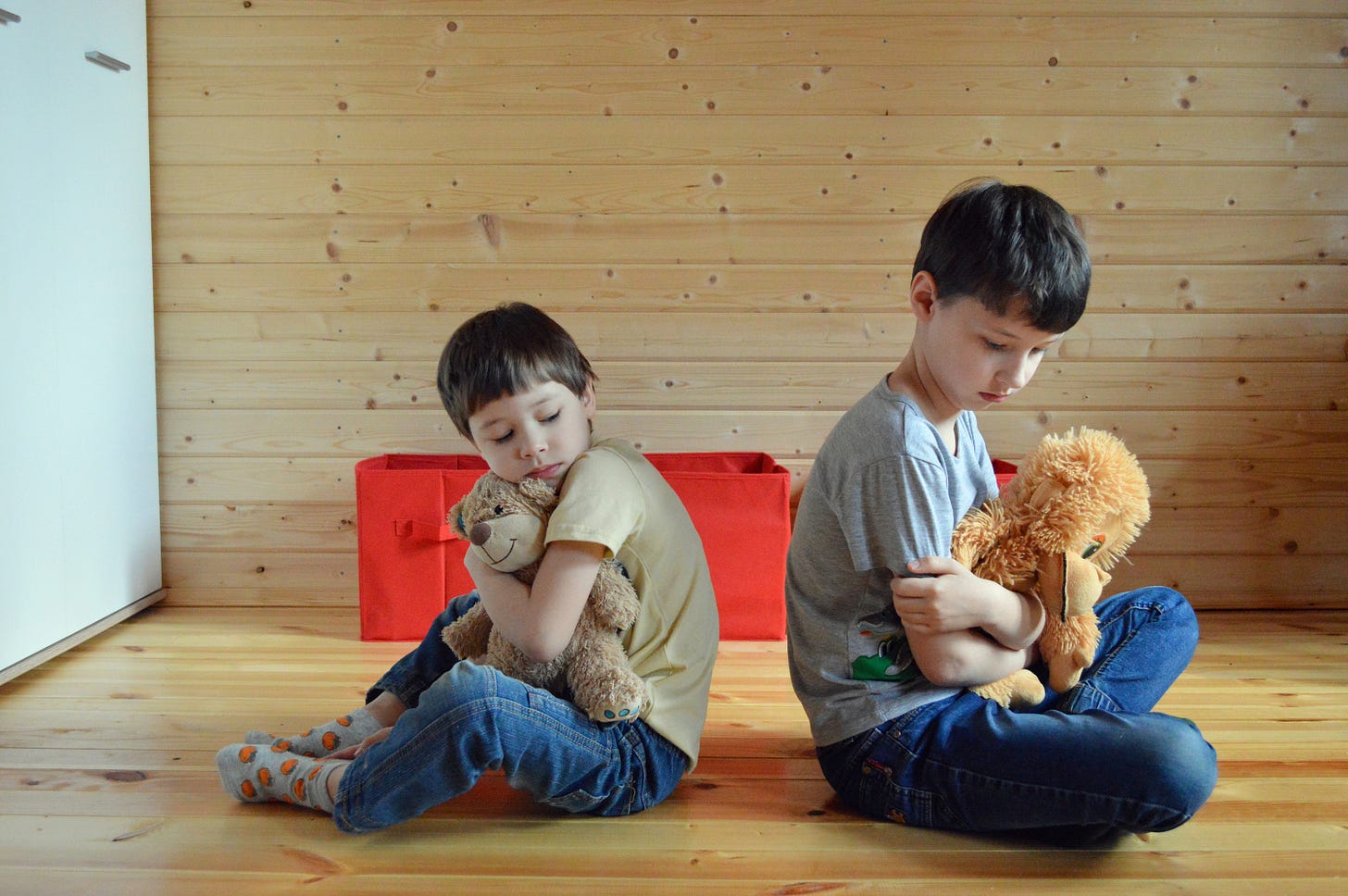How to Navigate Founder Reconciliation
Insights on Expressing Apology, Understanding Consequences, and Mending Emotional Wounds
I'm Manuel Saez, I write to help founders master emotional intelligence to make decisions with clarity 🌻 EQ coach, 2X-founder & award-winning designer ➜ I love fixing old motorcycles 🛵 🏍
Reading time: 4 min.
Contents:
How Do I Apologize And Express Remorse If I'm Not Sure I'm In The Wrong?
What Are The Consequences Of Not Apologizing?
How Do I Apologize To Someone Who Won't Accept My Apology?
What Are The Best Ways To Apologize To Someone I Hurt Emotionally?
How Do I Apologize And Express Remorse If I'm Not Sure I'm In The Wrong?
When we apologize, we acknowledge our part in the situation. This helps us grow as individuals by recognizing that everyone has different perspectives on life, which should all be respected. Even though it might feel uncomfortable to admit wrongdoing, it shows respect for those around us and allows us to move forward from any misunderstandings.
It can also benefit relationships with others personally and professionally, creating an environment of mutual understanding, trust, and empathy - qualities that foster healthy relationships. Saying sorry doesn't always mean admitting guilt; instead, it could reflect how another person may have perceived things differently than yourself, highlighting potential areas where one can improve communication skills moving forward.
Recognizing what apology means within the context of personal growth highlights how critical such words can be – regardless of who's at fault - to create lasting connections with those around us and ensure success in all aspects of life.
What Are The Consequences Of Not Apologizing?
Do not apologize when you should have created tension and affected your relationships with others. It is essential to understand why it's hard for some people to apologize and how avoiding an apology can affect one's life.
If we apologize, it may feel like admitting fault or weakness; however, this isn't necessarily true. Apologies show strength and humility, which are both admirable qualities. Additionally, saying sorry takes courage because our egos don't want us to look bad in front of someone else.
That being said, sometimes apologizing is necessary even if we're unsure whether we're wrong or right—it lets those around us know that we respect them and their feelings.
Without apologies, resentments build up until they become too large to ignore. Without a resolution from an apology, negative emotions between the two parties will continue to grow and cause more harm than good. This could destroy relationships with friends and family members due to a lack of communication or misunderstanding of how much something was hurtful or offensive.
To prevent this from happening, it's best to confront the issue head-on by offering an apology where appropriate.
Failing to apologize has long-term implications beyond just making amends with another person. It can also damage our mental health by creating guilt and stress through unresolved conflicts. Learning how and when it's appropriate to apologize is essential for moving forward positively in all aspects of life, maintaining healthy relationships, and overall well-being.
How Do I Apologize To Someone Who Won't Accept My Apology?
Trying to apologize to someone who won't accept your apology can be difficult. It's hard to know what to do when we experience rejection after trying to make amends, and it can leave us feeling helpless and discouraged. But there are ways we can still show our sincerity even if the other person refuses to acknowledge it.
First, remember that you don't need anyone else's acceptance for your apology to be valid. That doesn't mean you shouldn't try, but sometimes understanding their perspective is enough to forgive yourself and move on with your life.
Make sure that whatever action or words you use will come from genuine remorse instead of just going through the motions because society tells us we should apologize in certain situations.
It's also important not to vent frustration on the other person by making them feel guilty or inferior. Even though they may have acted wrongfully towards you, they still deserve respect as human beings regardless of how they responded to your apology.
Instead of dwelling on the negative feelings, focus on expressing empathy and understanding so that both parties can learn something positive from this situation. This way, no one loses face, and everyone has the chance to grow in their relationships despite unresolved issues.
By taking ownership of your mistakes without expecting anything back in return, you'll find peace within yourself and strengthen those around you—even if they never accept your apology directly. After all, showing grace under pressure shows great strength of character, which ultimately reflects positively on you.
What Are The Best Ways To Apologize To Someone I Hurt Emotionally?
Saying sorry to someone you hurt emotionally can be difficult. While it may seem daunting, there are some simple steps one can take to make the process easier and more effective.
When attempting to apologize to someone deeply affected by your words or deeds, it is essential to remember that sincere remorse is imperative. An insincere apology is worse than no apology; not only does it fail to provide any form of resolution or closure for the person who was wronged, but it also reinforces negative feelings about oneself in the offender.
Therefore, being honest with yourself and genuinely owning up to what you did wrong can go a long way toward making amends.
The final step in apologizing is providing an appropriate reparation.
This could mean anything from simply saying "I'm sorry," followed by understanding why what happened was unacceptable, to taking tangible action such as paying back money owed or spending time with the other person engaging in activities they enjoy doing together.
Whatever form this takes should depend on both parties involved - something too small might be seen as dismissive, while something too big may appear insincere. Finding common ground between the two individuals is critical when settling matters after causing emotional harm.
No matter how hard we try, though, sometimes our attempts at apologies don't work out, and forgiveness isn't given. In these cases, it's essential to move forward without dwelling on past mistakes, knowing that everyone makes them - particularly those involving emotions, which tend to be delicate matters even under ideal circumstances.
Sending you good vibes 🌻
Manuel Saez





